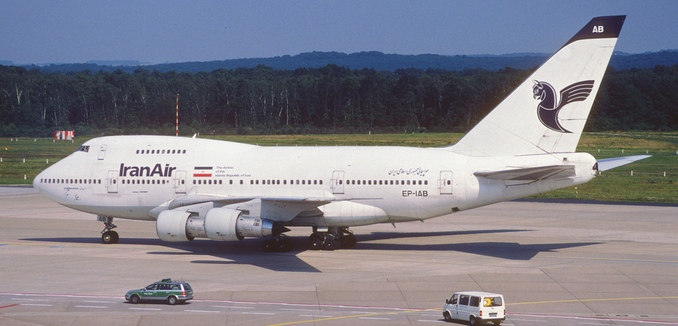The $25 billion aircraft deal that Boeing recently struck with Iran could be jeopardized by Tehran’s continued support of Syrian dictator Bashar al-Assad, the Associated Press (AP) reported Thursday.
Boeing’s jets will be sold to the state-owned Iran Air, which was sanctioned by the Treasury Department in 2011 partially due to its transport of “potentially dangerous Islamic Revolutionary Guard Corps (IRGC)-related cargo” and “missile or rocket components” to Syria. A Western intelligence report seen by Reuters in 2012 noted that Iran continued using civilian aircraft to transport large amounts of arms and personnel to aid Assad.
In the wake of the nuclear deal, the Obama administration dropped sanctions against Iran Air, even though U.S. officials gave no indication that the airline’s behavior had changed. In fact, Emanuele Ottolenghi, a senior fellow at the Foundation for Defense of Democracies who tracks Iranian flights, noted that the airline flew to Damascus earlier this month, possibly to transport troops and materiel to Assad.
Iran Air flying Abadan to Damascus. Less than 6 months after JCPOA implementation, Iran Air running #SyriaExpress pic.twitter.com/fCS0PdiTJj
— Emanuele Ottolenghi (@eottolenghi) June 9, 2016
In his Wednesday briefing with reporters, State Department Spokesman John Kirby said that Boeing’s license to sell aircraft to Iran could be revoked if Iran Air used its planes “for purposes other than exclusively civil aviation end-use.”
Kirby rejected the notion that the Obama administration “would or will turn a blind eye to Iran’s state sponsorship of terrorism or their terrorist-supporting activities is completely without merit.” However, the AP reported that during Thursday’s press briefing, Kirby was unclear what justification the Obama administration used to lift the sanctions against Iran Air.
“If Iran Air continues supporting Iranian military or Revolutionary Guard operations, it would put the Obama administration or any successor in a bind,” the AP wrote. “Revoking the license and suspending future plane transfers risks angering the Iranians, who’ve already complained about not receiving sufficient benefit for their nuclear concessions. It also could mean billions in lost revenue for a large American company with more than 130,000 employees in the United States.”
The Daily Beast reported on Wednesday that Thomas Pickering, a veteran U.S. diplomat who vocally supported the nuclear deal, never revealed his ties to Boeing, even when he testified before Congress in favor of the deal.
Boeing’s decision to sell aircraft to Iran has been heavily criticized. Reps. Peter Roskam (R – Ill.) and Jeb Hensarling (R – Texas) sent a letter to Boeing CEO Dennis Muilenburg last week arguing that “American companies should not be complicit in weaponizing the Iranian Regime.” Ottolenghi has also warned that Iran’s history of using civilian aircraft for military purposes could make Boeing complicit in Iran’s support for Assad, including the regime’s war crimes. If the plane sales are determined to have aided the abuses of the Assad regime, the company could become subject to sanctions.
[Photo: Aero Icarus / Flickr ]




